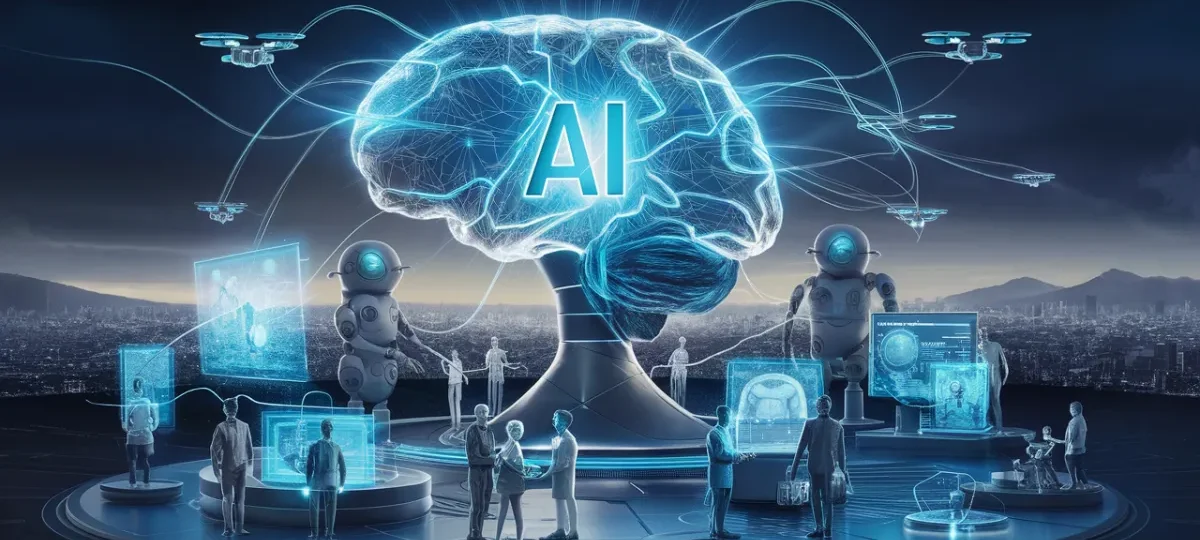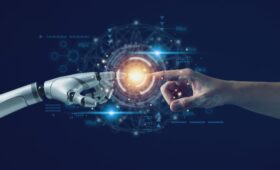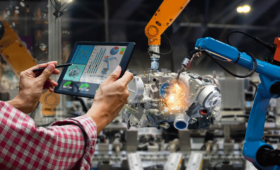Artificial Intelligence (AI) is often heralded as the cornerstone of the next industrial revolution. Over the past decade, AI has transformed industries, revolutionized business practices, and reshaped how we interact with technology. From self-driving cars to voice assistants like Siri and Alexa, AI is no longer a futuristic concept—it is already a part of our everyday lives. But as AI continues to evolve and expand its capabilities, one big question remains: Is AI the future of innovation?
The answer, overwhelmingly, seems to be yes. AI has the potential to drive unprecedented levels of innovation across industries, unlocking new opportunities, efficiencies, and breakthroughs that we can only begin to imagine. However, the journey towards widespread AI-driven innovation also comes with challenges, concerns, and ethical questions that need to be addressed.
AI’s Role in Driving Innovation
1. AI in Healthcare: Revolutionizing Diagnosis and Treatment
One of the most promising areas where AI is driving innovation is in healthcare. AI’s ability to analyze vast amounts of data and recognize patterns is transforming how doctors diagnose and treat diseases. Machine learning algorithms can scan medical images, such as X-rays and MRIs, to detect early signs of conditions like cancer, often more accurately than human doctors. AI-powered systems like IBM’s Watson for Oncology are already helping medical professionals create personalized treatment plans for cancer patients by analyzing patient data and available research.
Beyond diagnostics, AI is also helping with drug discovery. AI models can simulate and predict how different compounds will interact with the human body, drastically reducing the time and cost of developing new medications. With AI’s power, we may see the development of targeted treatments for diseases that currently have no cure.
2. AI in Transportation: Transforming Mobility and Logistics
The transportation industry is another sector undergoing significant change due to AI. Self-driving cars and trucks, powered by AI systems that process data from sensors, cameras, and GPS, are set to revolutionize the way people travel and goods are transported. Companies like Tesla, Waymo, and Uber are already testing autonomous vehicles, and the potential for increased safety, efficiency, and reduced emissions is enormous.
AI is also improving logistics management. Intelligent routing systems can optimize delivery schedules, reduce fuel consumption, and improve the efficiency of supply chains. By predicting traffic patterns, weather conditions, and demand, AI can help companies make better decisions in real time, leading to cost savings and improved customer satisfaction.
3. AI in Education: Personalized Learning Experiences
Education is an area ripe for innovation through AI. With personalized learning powered by AI, students can benefit from individualized learning experiences tailored to their unique strengths, weaknesses, and learning styles. AI algorithms can analyze student performance and suggest the best content and exercises for improving skills, ensuring that every student can learn at their own pace.
Furthermore, AI-powered tutoring systems are emerging to provide additional support for students. These systems can answer questions, explain concepts, and provide feedback instantly, supplementing traditional classroom instruction and giving students a more interactive and engaging experience. In this way, AI is enhancing educational accessibility, particularly in underserved regions or communities.
4. AI in Business: Automating Processes and Improving Decision-Making
In business, AI is already transforming how organizations operate. From automating repetitive tasks and streamlining operations to improving customer service with chatbots and virtual assistants, AI is helping companies become more efficient and cost-effective. AI tools can handle tasks like data entry, fraud detection, and inventory management, freeing up human employees to focus on more strategic and creative work.
Moreover, AI is improving decision-making in organizations. Machine learning models can analyze vast amounts of business data to generate insights that human analysts might miss. This data-driven decision-making process can help businesses understand market trends, customer behavior, and even predict future outcomes with greater accuracy. In industries like finance, AI is enabling better risk management and fraud prevention, while in marketing, AI is helping brands target the right customers with more personalized campaigns.
The Challenges and Ethical Implications of AI Innovation
While AI holds enormous potential for driving innovation, its rapid growth also presents several challenges and ethical considerations:
1. Job Displacement and Economic Disruption
One of the most frequently discussed concerns about AI is its potential to displace human workers. As automation increases and AI takes over tasks that were once performed by humans, entire industries may experience significant shifts. Jobs in sectors like manufacturing, transportation, and even customer service could be at risk. For instance, the rise of autonomous vehicles could eliminate millions of jobs for truck drivers and delivery drivers.
However, AI also has the potential to create new jobs, particularly in fields like AI development, data science, and machine learning. The challenge will be to ensure that workers displaced by automation are retrained and equipped with the skills needed for the new economy. Governments and organizations will need to invest in workforce development to prepare for the disruptions AI could bring.
2. Ethical Concerns: Bias and Fairness
Another significant concern is the ethical implications of AI, particularly related to bias and fairness. AI algorithms are trained on data, and if that data reflects human biases—whether based on race, gender, or socioeconomic status—the AI system can perpetuate and even amplify these biases. This is especially concerning in fields like criminal justice, hiring practices, and lending, where biased AI models could unfairly disadvantage certain groups of people.
To address this, AI developers must prioritize fairness and transparency in the development of AI systems. This includes ensuring that data used to train AI models is representative and diverse and that AI systems are regularly tested and audited for bias.
3. Privacy and Security
As AI becomes more integrated into our daily lives, the issue of privacy becomes increasingly important. AI systems often rely on vast amounts of personal data to function, and there is growing concern about how that data is collected, stored, and used. In industries like healthcare, finance, and retail, sensitive personal information is often at risk of being exploited or hacked.
To ensure that AI innovation does not come at the expense of privacy, there must be strict regulations governing data usage, as well as robust cybersecurity measures to protect against data breaches. Consumers should also have more control over their data and be informed about how it is being used by AI systems.
The Future of AI-Driven Innovation
Despite these challenges, AI is undeniably positioned to be a driving force behind future innovation. As the technology continues to evolve, we can expect even more revolutionary applications in fields like healthcare, transportation, education, and business. With the right investment in AI research and development, along with ethical frameworks and policies to guide its growth, AI can help solve some of humanity’s most pressing problems.
For example, AI could play a crucial role in addressing climate change by optimizing energy consumption, reducing waste, and helping to develop sustainable technologies. In space exploration, AI can assist in analyzing vast amounts of data from satellites or space probes, accelerating discoveries about our universe.
In the end, the future of innovation is closely tied to AI’s development and application. While there are obstacles to overcome, AI’s potential to transform industries, improve quality of life, and tackle global challenges makes it one of the most exciting technological advancements of our time. If harnessed responsibly, AI will undoubtedly be at the heart of the next wave of innovation, shaping the future in ways we are just beginning to understand.
Conclusion
AI is undoubtedly one of the most powerful drivers of innovation today, with the potential to revolutionize nearly every sector of society. However, for AI to truly become the future of innovation, it must be developed and implemented ethically, responsibly, and inclusively. By addressing challenges like job displacement, bias, privacy concerns, and regulation, we can unlock the full potential of AI to create a more efficient, equitable, and innovative future.




